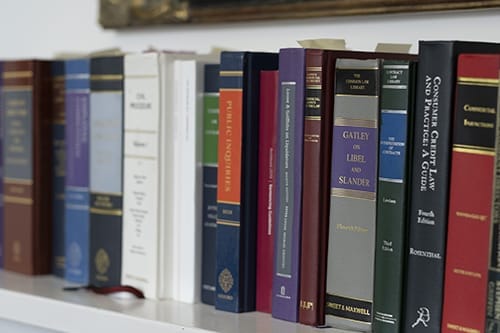Daylight Raab-ery – Criminal Barristers Strike Back Against Existential Crisis Threatening to Permanently Damage their Profession
Last week the Government made a meagre 15% fee increase offer to criminal barristers. I wish I could say I am surprised that Dominic Raab and his cronies would take a ‘bare minimum’ approach – but I am not. The Justice Secretary who recently described the strike as “unnecessary and irresponsible” is towing the line of a government that has consistently slashed every part of criminal justice since coming to power.
Perhaps he should make his case to the victims and defendants of crime whose cases are awaiting trial. Victims and defendants who may not only face long delays in their right to justice, but also face the very likely prospect that they will be appointed a barrister who received only 6 hours’ notice they will be covering the case, and is desperately trying to absorb hundreds or even thousands of pages of evidence on their way to court.
To say the current criminal justice system is unsustainable, is an understatement!
Why are barristers striking?
In simple terms, because the current approach taken by the government threatens to damage the fabric of society and undermine the system of criminal justice in the United Kingdom!
Criminal barristers across the country began striking last week over disputes about pay and working conditions. Having faced relentless cuts to funding over decades, barristers in chambers nationwide are being forced out of the profession, or facing ‘burn out’, due to low pay, and the expectation they should do more for less.
Let’s dispel a huge myth – criminal barristers are not fat cats. No one enters the criminal bar for the money, but they do not expect to bring home less than minimum wage. That, however, is the reality today – with barristers not being paid a fair fee for the work they do, and also having their goodwill exploited on a daily basis as the justice system buckles due to underfunding and under-resourcing.
The courts currently have a back log of almost 60,000 cases waiting to be heard, and as more and more barristers are forced out of the profession, those that remain are having to pick up the slack, often at the last minute.
The Independent Review of Criminal Legal Aid condemned years of neglect by the government, suggesting as a bare minimum criminal barristers should receive a 15% fee increase and urging the government to invest in properly funding and reinvigorating criminal legal aid.
Although the government claims to have accepted the review’s recommendations, the Criminal Bar Association (CBA) insists that the 15% increase will not be sufficient to retain enough barristers to keep the wheels of justice turning and is instead asking for a 25% rise in pay for legal aid work – which ensures people who could not otherwise afford lawyers have access to the representation to which they are entitled.
This is more than reasonable. It is a fair compromise and a huge concession by highly skilled professionals who have watched the government withhold £240 million in legal aid that should have been paid to out to them, have seen legal aid rates cut by almost 40%, and have maintained a huge case load whilst watching their wages get slashed by 20% in recent years.
What can we expect and what will be the impact?
This week’s strike is part of a planned four week-action that will culminate in a five day walk out on 18th July. During the strike action barristers will adopt ‘no returns’ (meaning barristers will not accept cases that are returned by colleagues who have a diary clash – breaking a long-held system of goodwill) and will conduct a series of court walkouts. Of course, this strike will inflict pain. But let’s be blunt, the short-term impact of the action pales into insignificance when compared to the damage that will be incurred by the long-term decline of the criminal law profession. A joint statement issued by CBA chair Jo Sidhu QC and vice-president Kirsty Brimelow QC said: “This extraordinary commitment to the democratic process reflects a recognition amongst criminal barristers at all levels of call and across all Circuits that what is at stake is the survival of a profession of specialist criminal advocates and of the criminal justice system which depends so critically upon their labour.”
Of course, there is also another issue at stake here. As stated previously, the impression that criminal barriers are over-paid fat cats is misleading. But that is exactly what the profession could become if the government fails to act (and that could now take some time given the current Conservative leadership contest), and the public fails to understand and support this cause.
The composition of the bar is a matter of public interest. When barristers from less-privileged economic backgrounds – as well as women and ethnic minorities – are forced to leave the profession over low pay, this creates a barrier to entry into the profession, preserving the bar as something only for the privileged and engendering the elitism and cronyism the British public are well known to despise.
Please join Leverets in supporting criminal barristers. Should you ever find yourself in need of their services, you’ll be glad you did.








